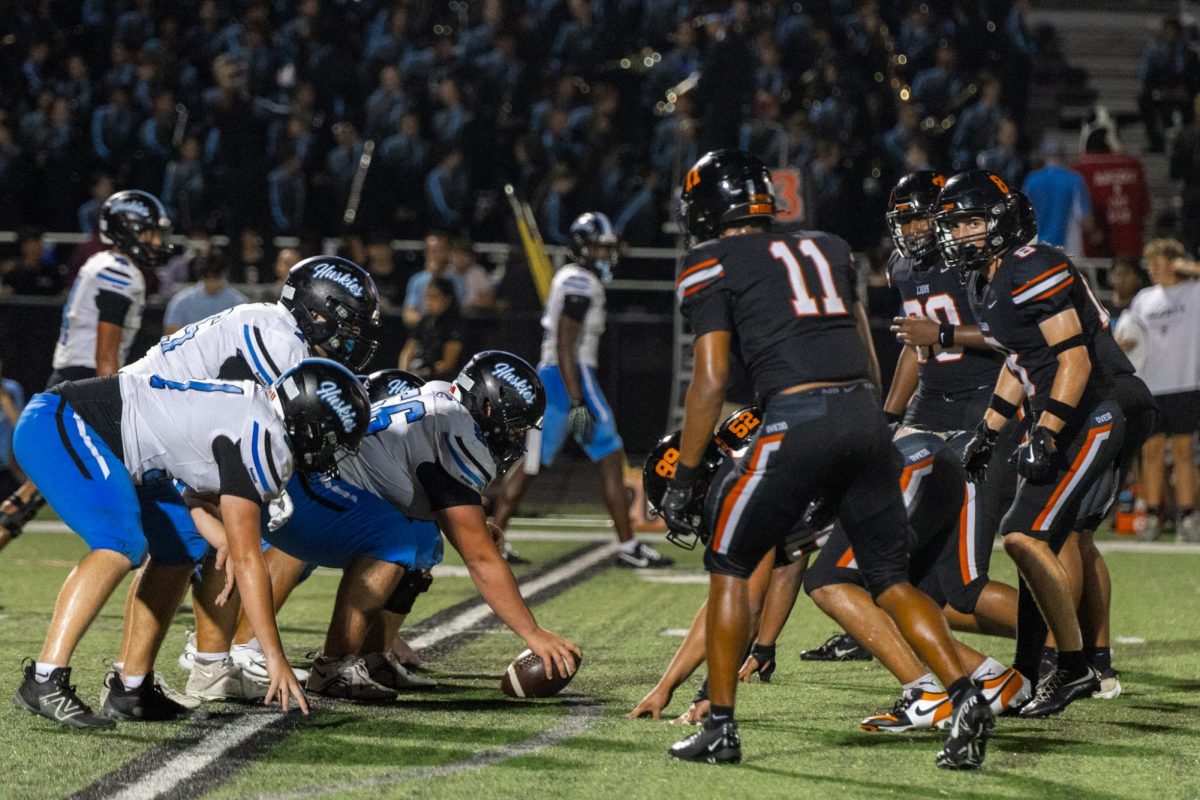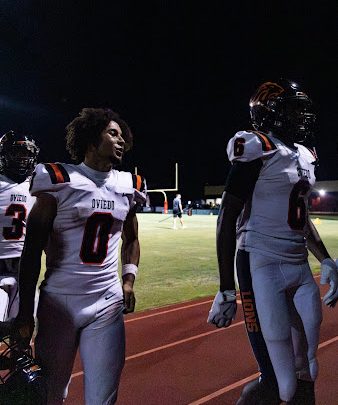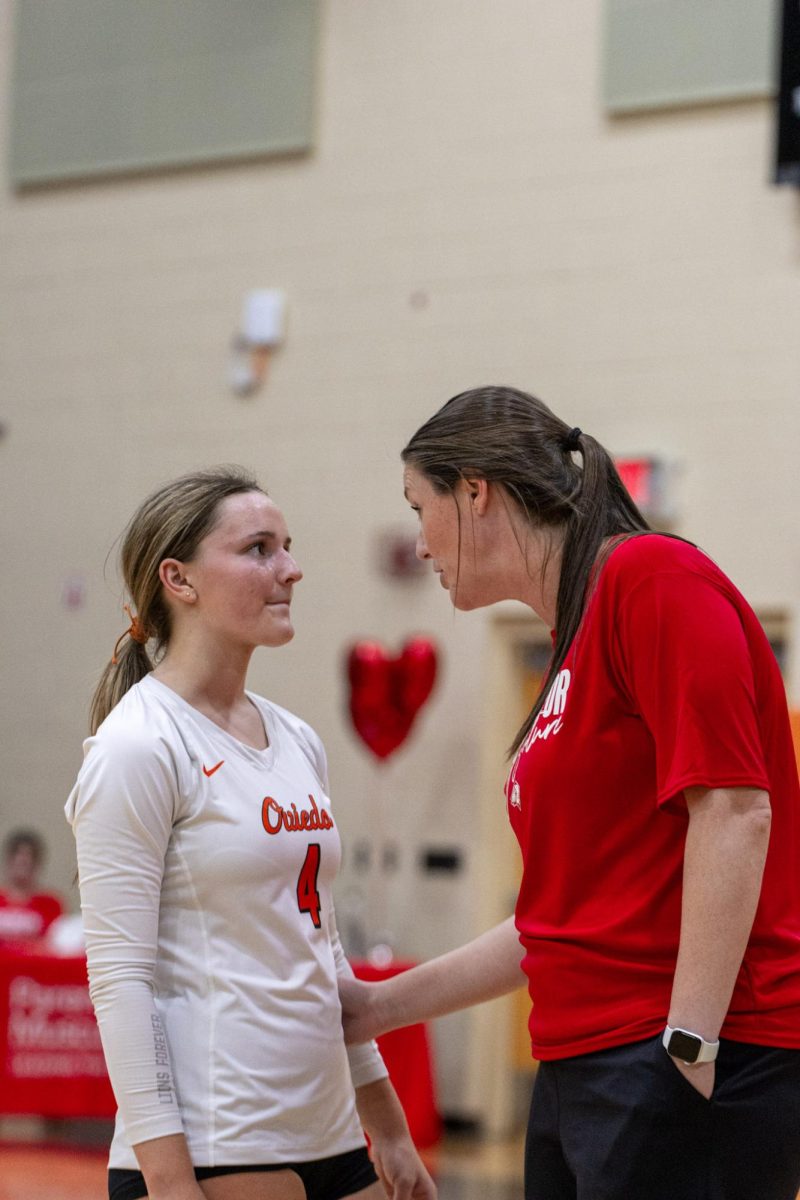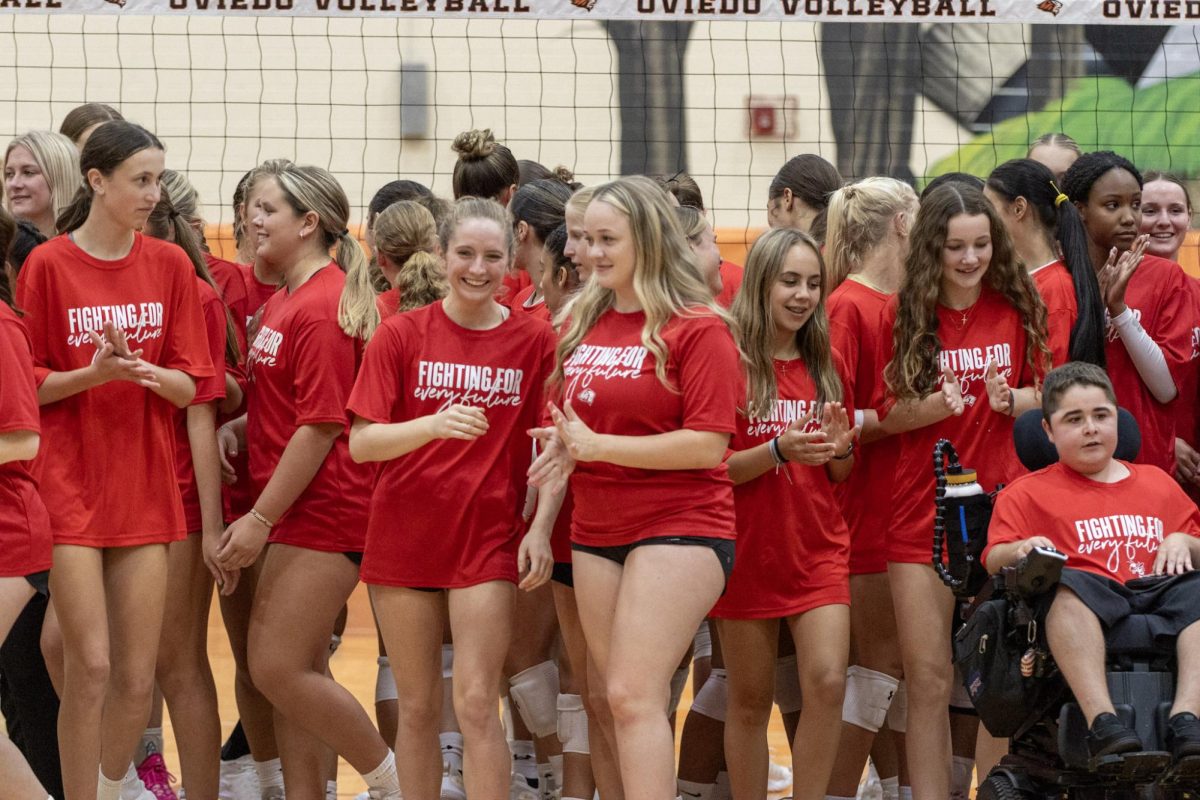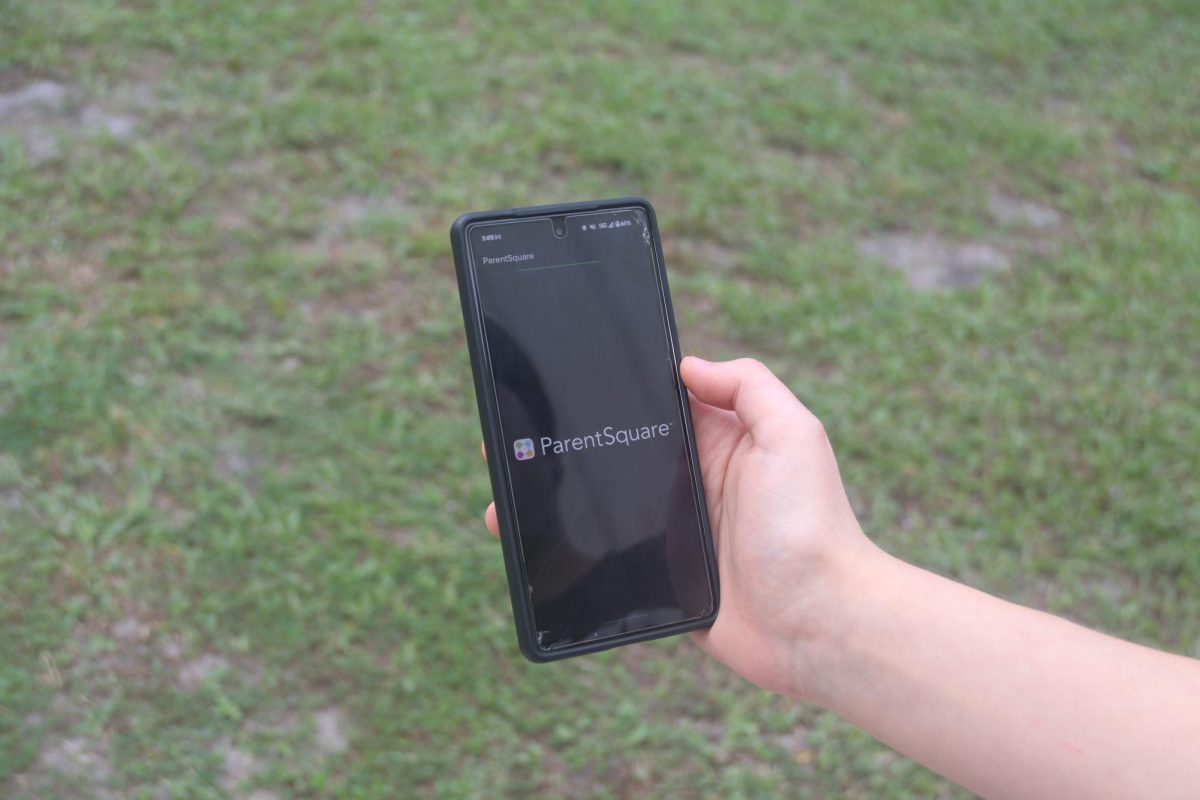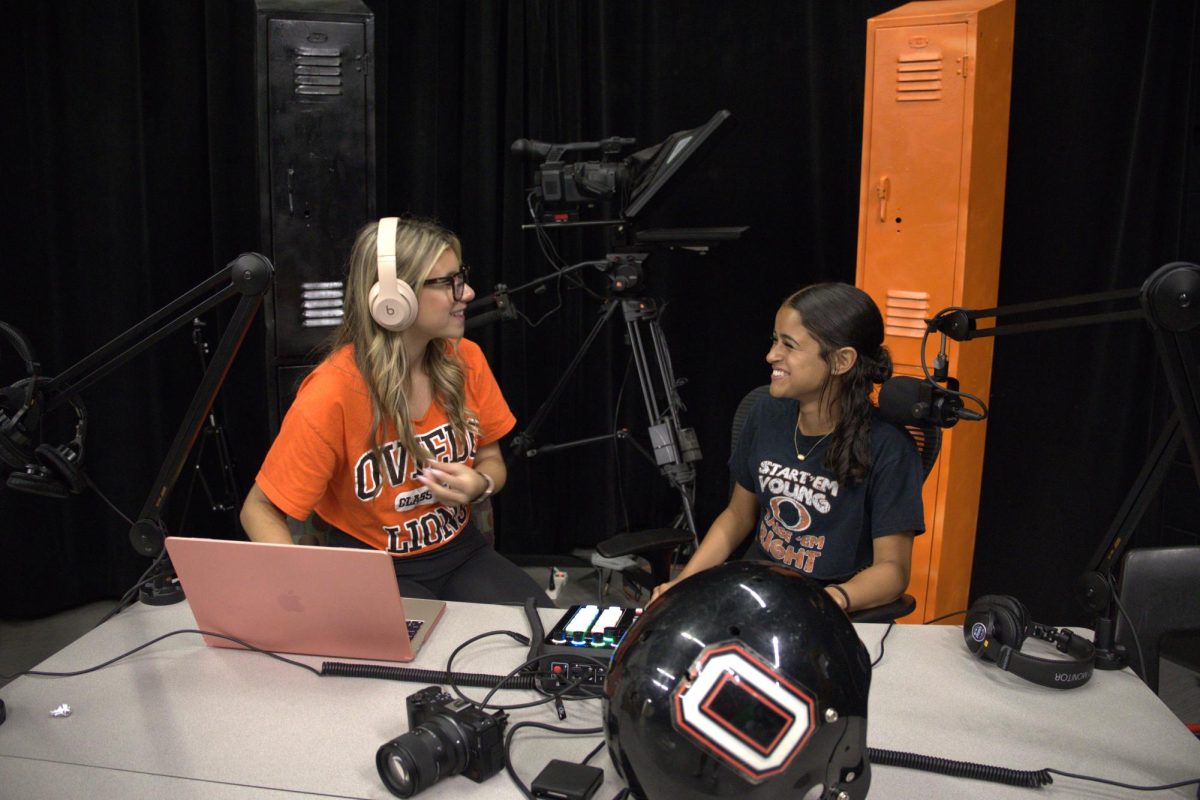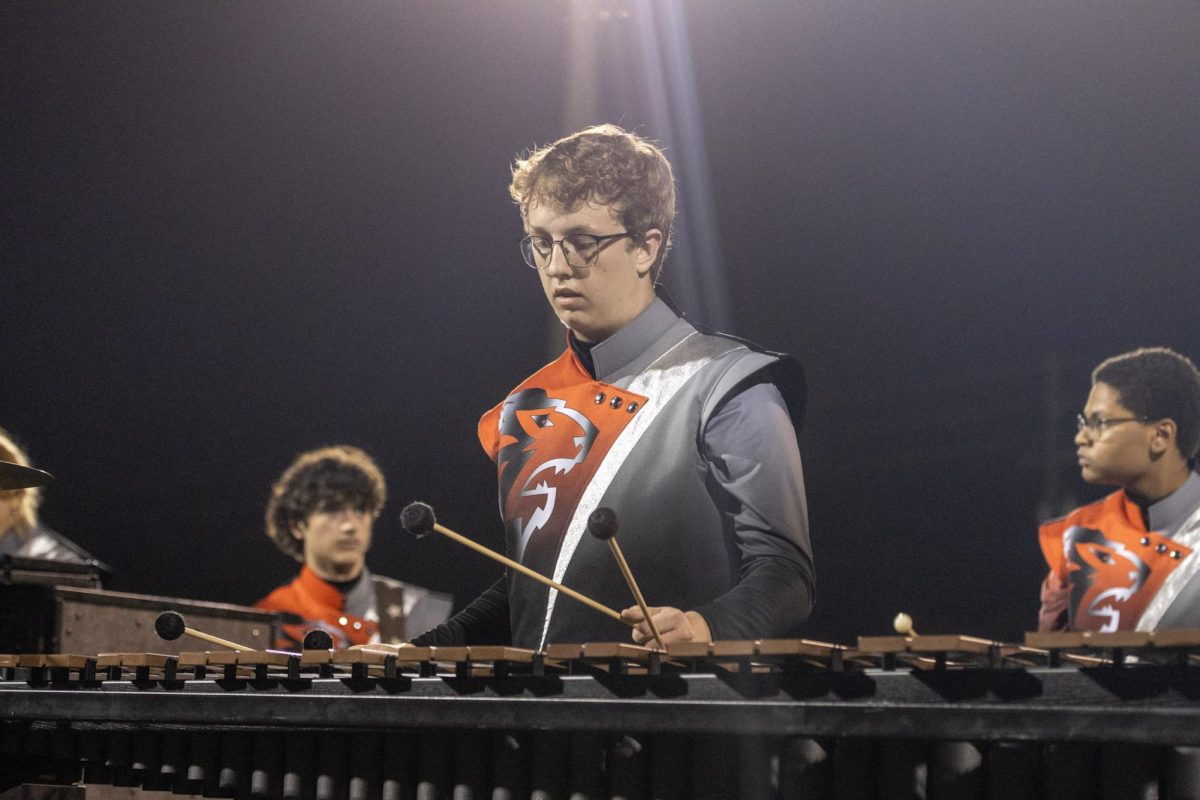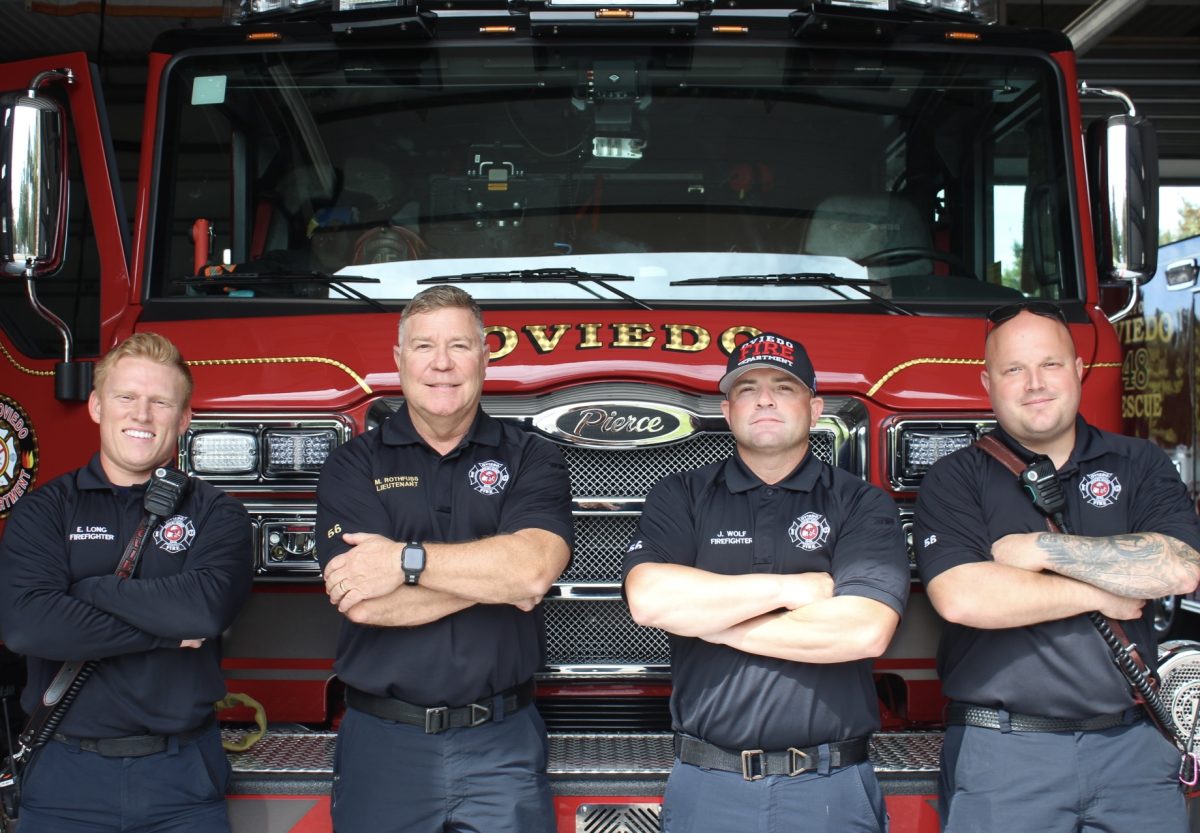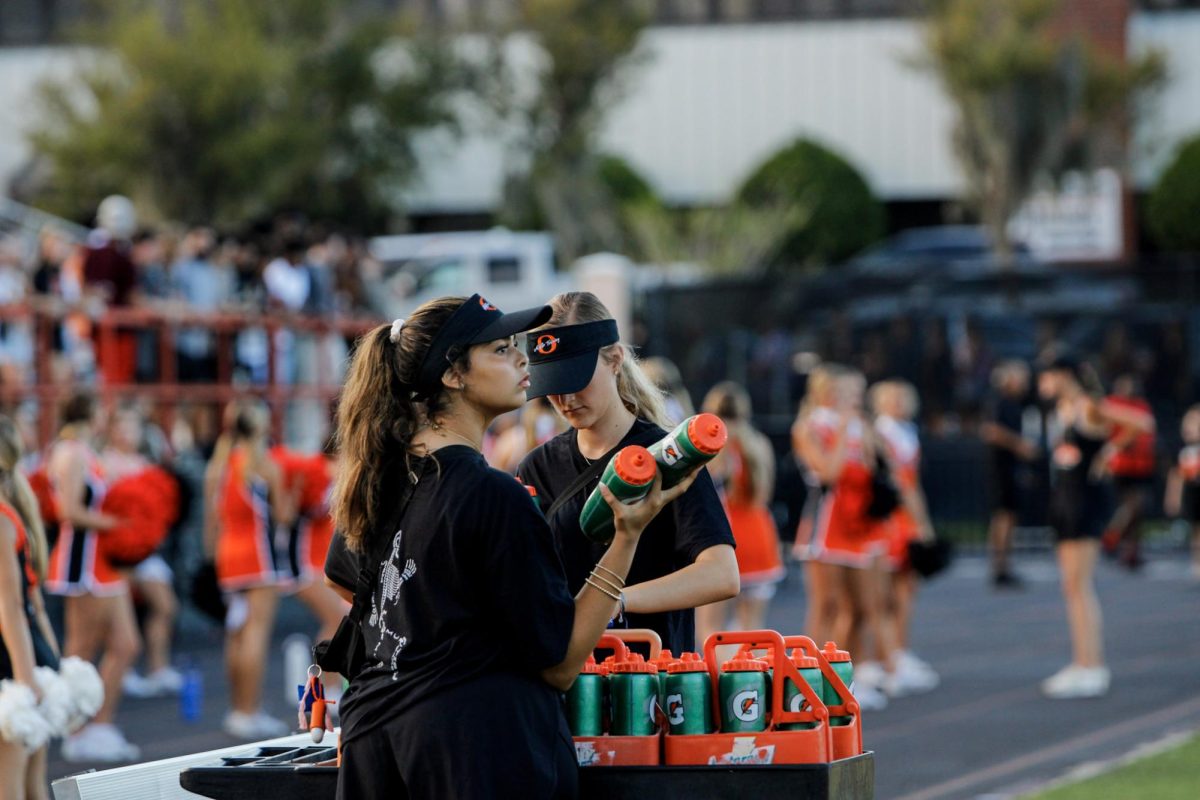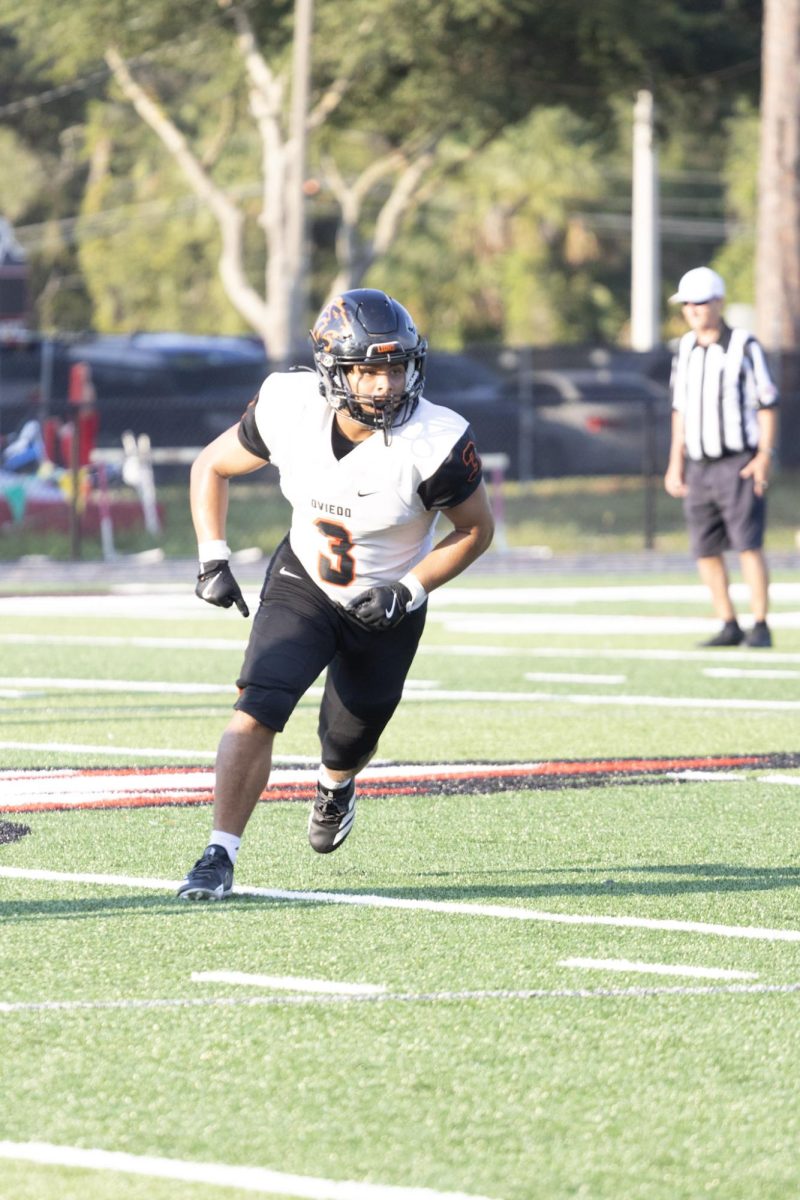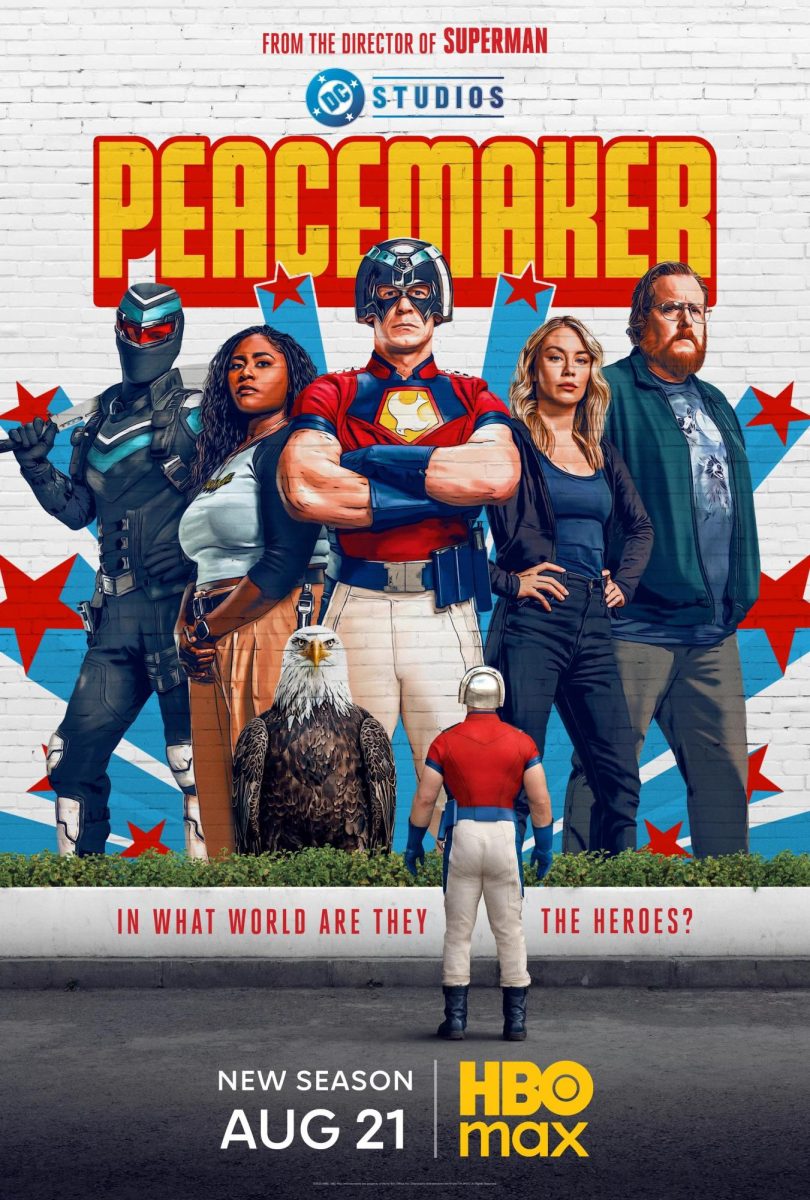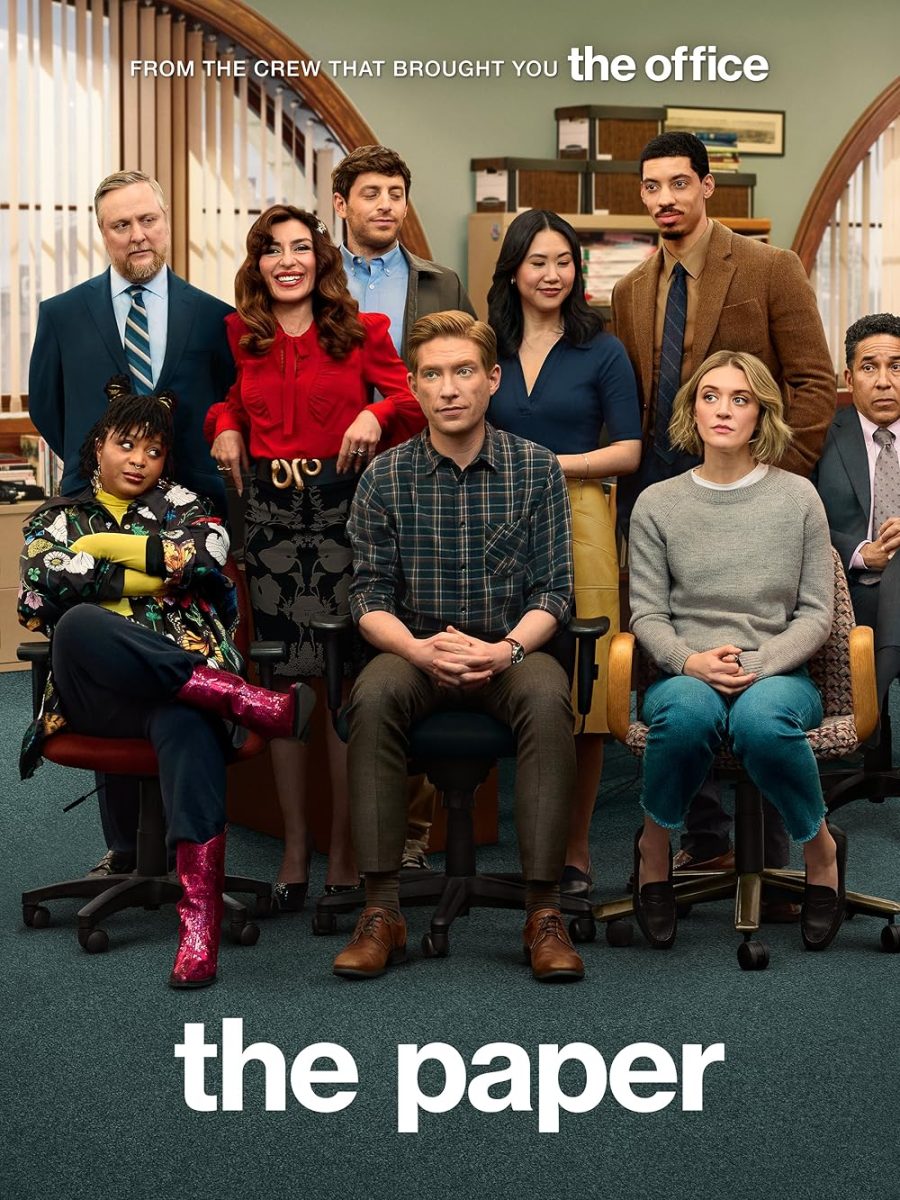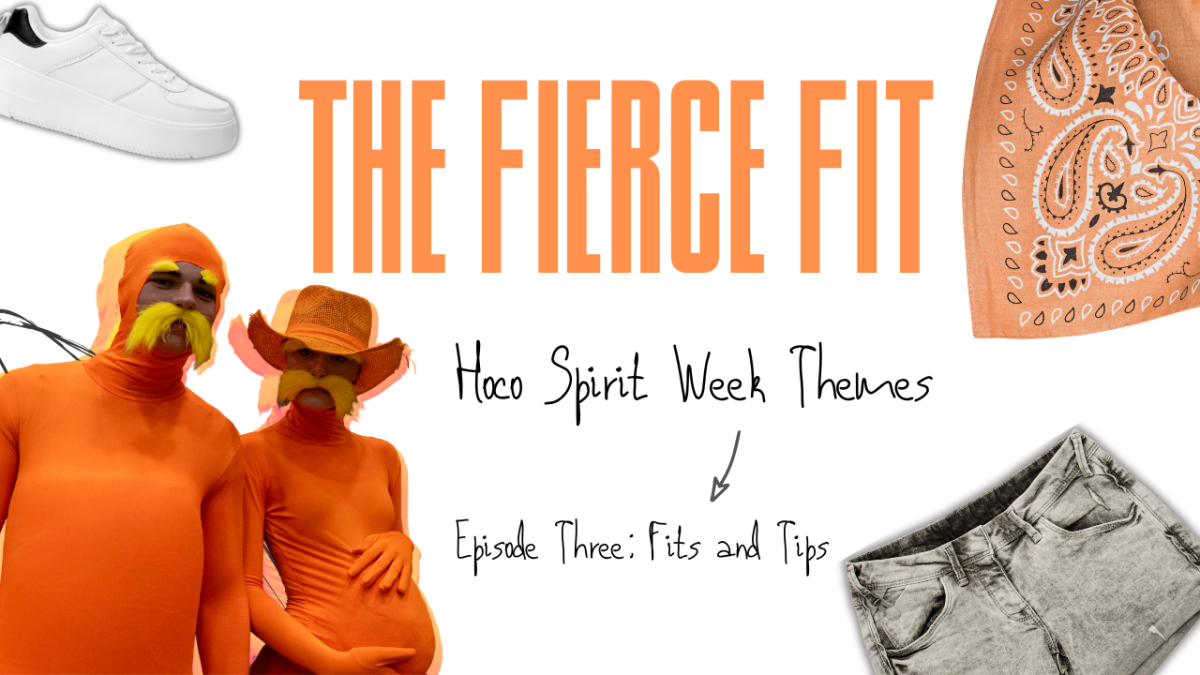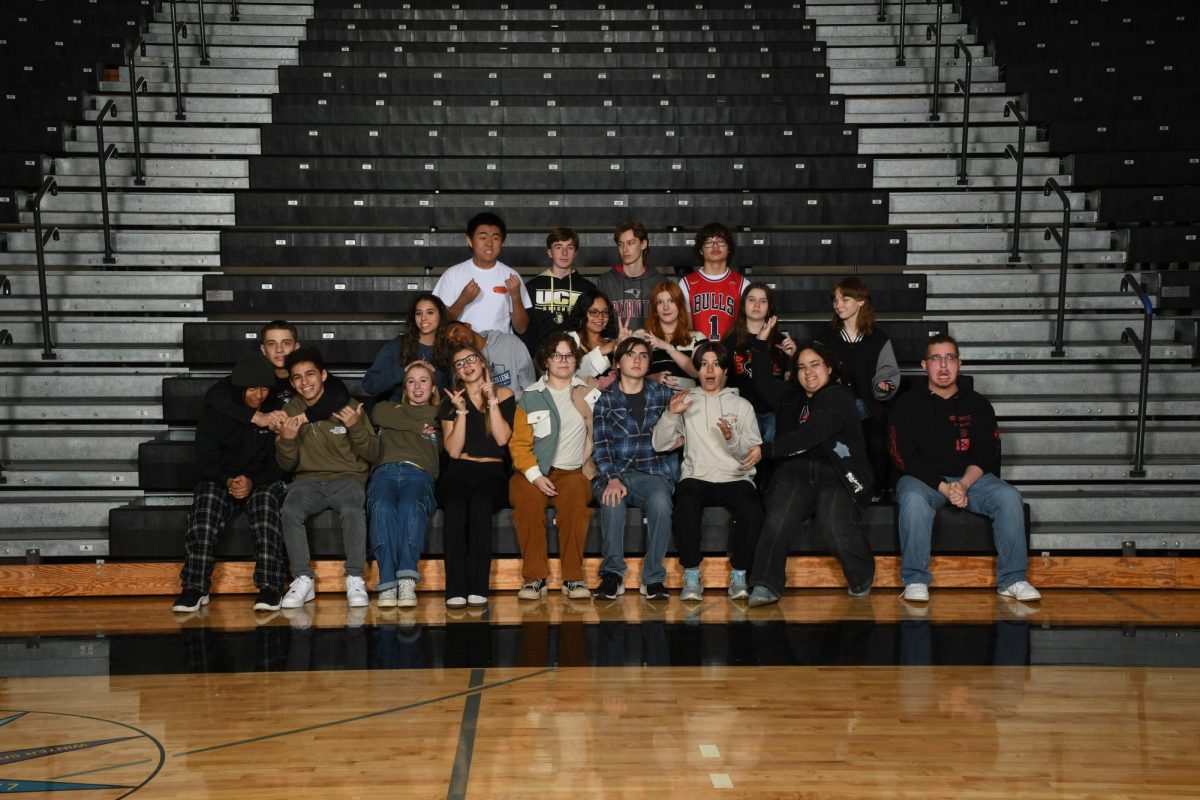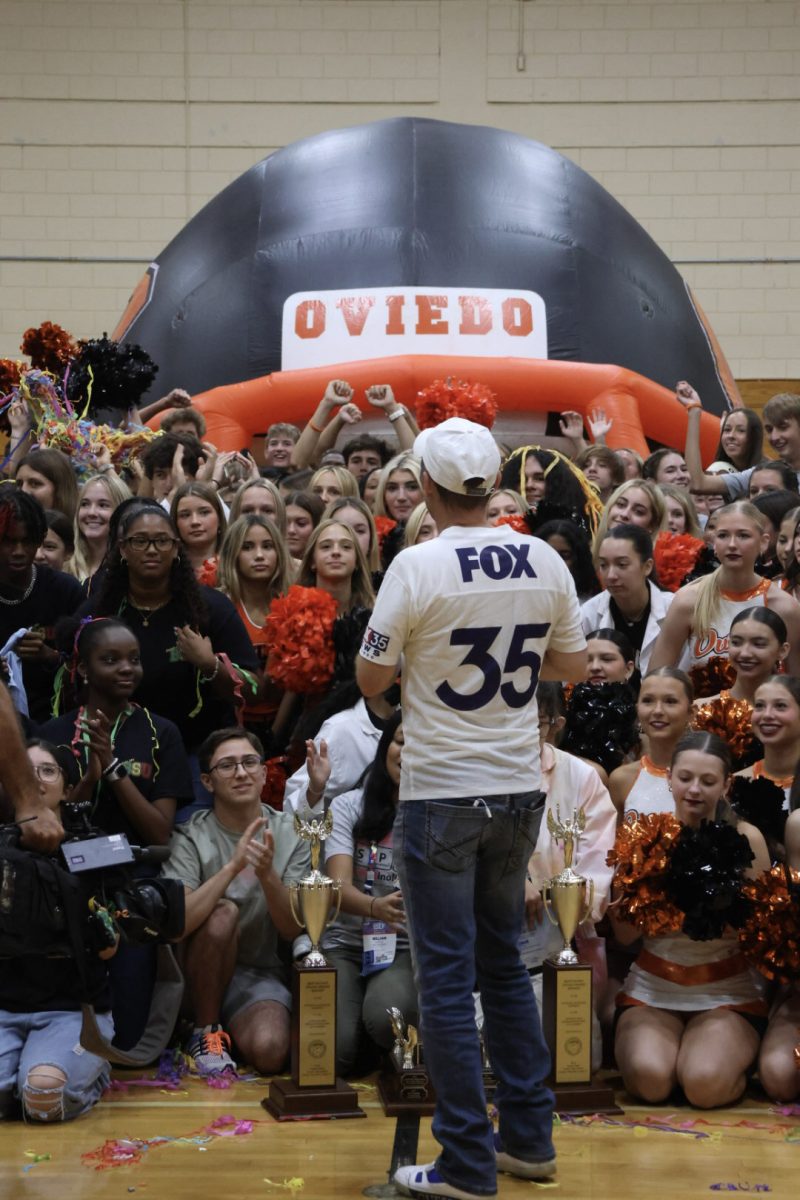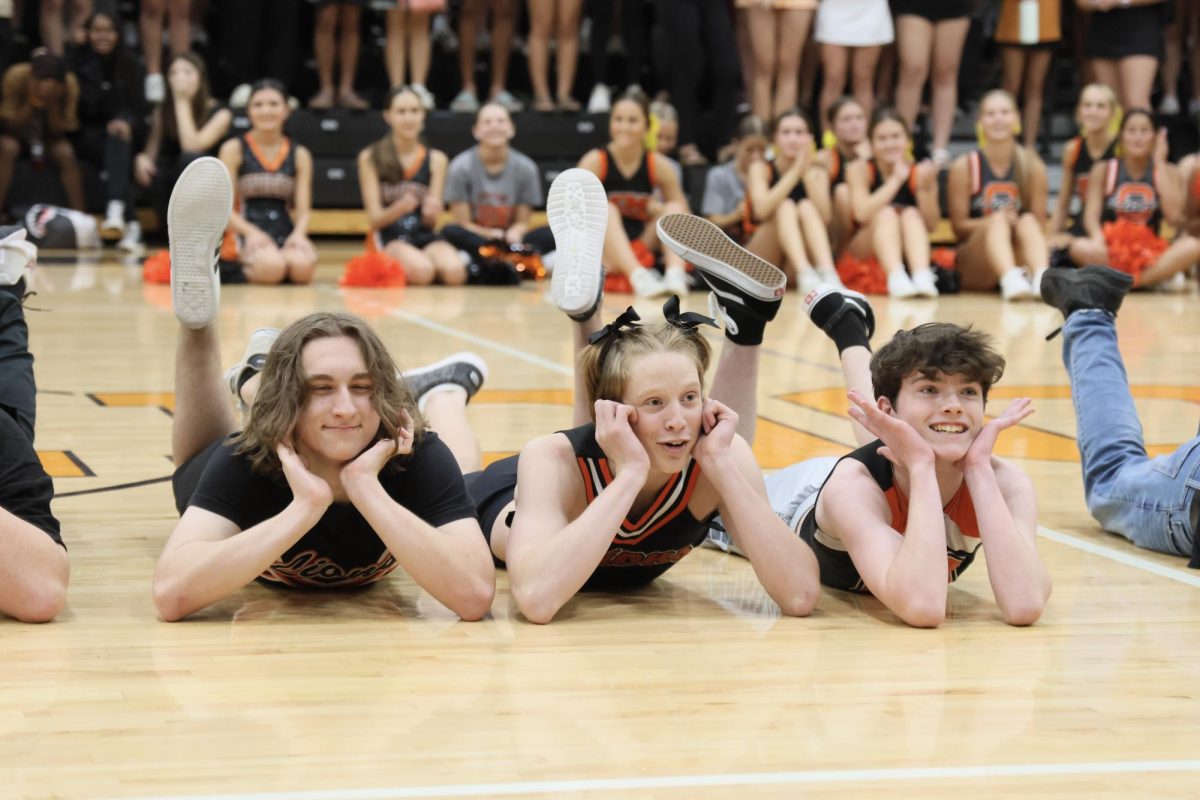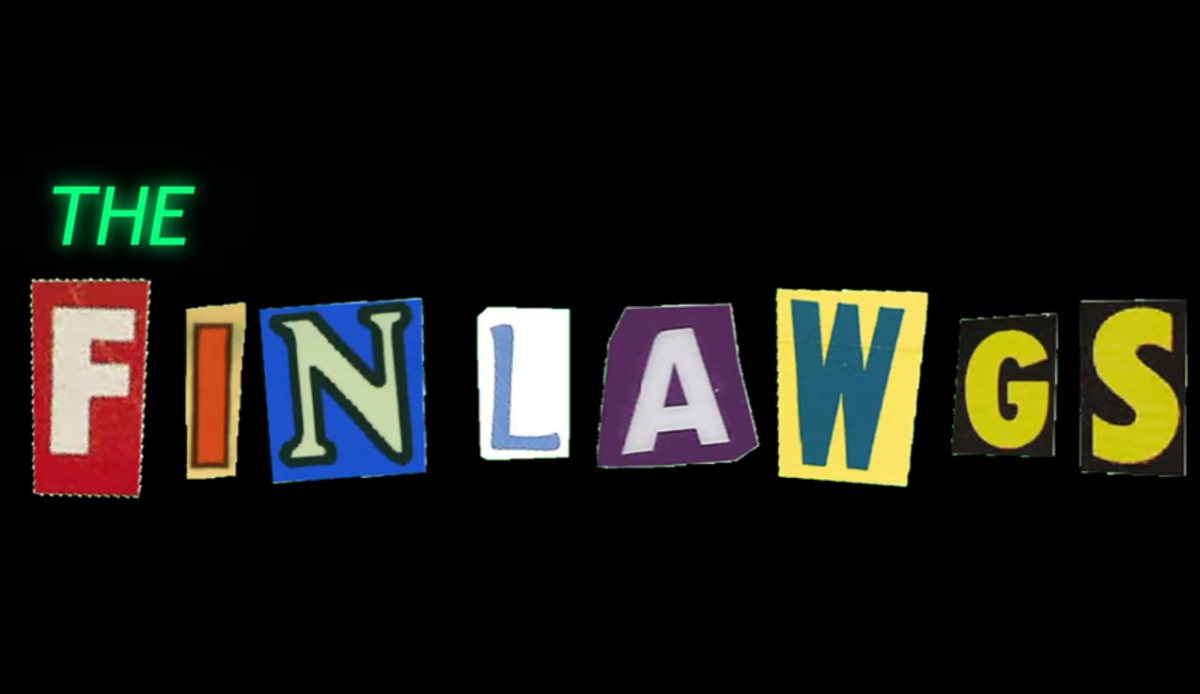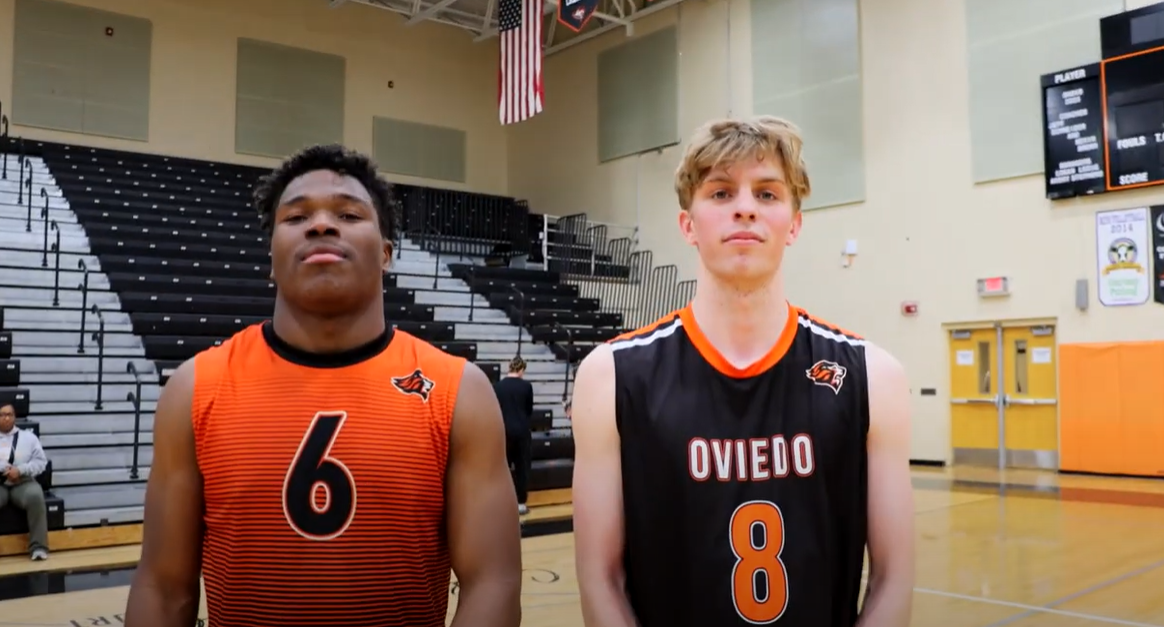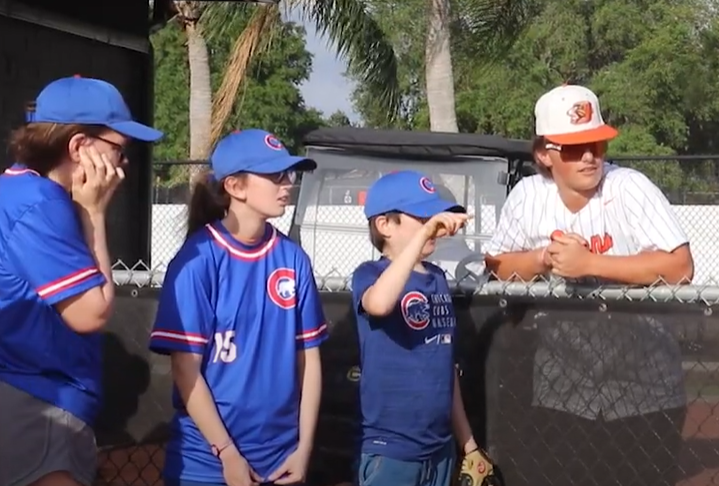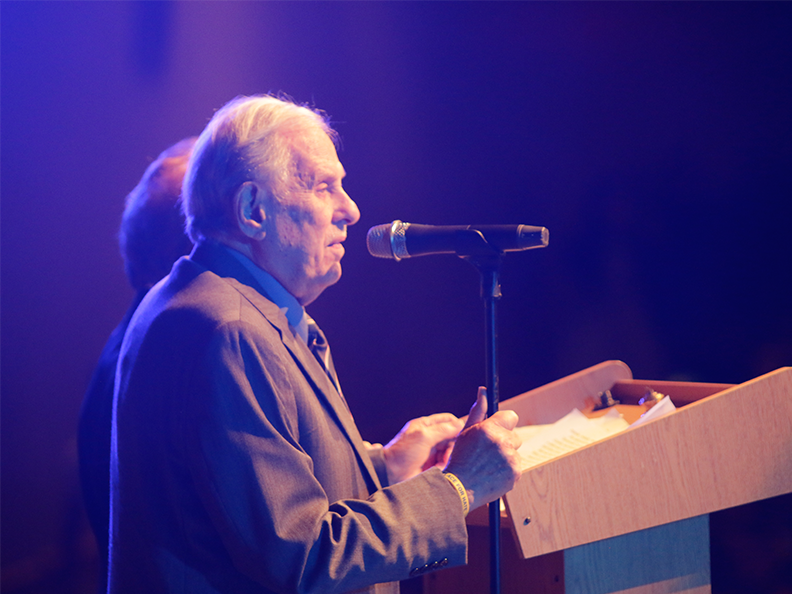Holocaust survivors share experiences, encourage tolerance
Survivor Gerald Biegel shares his Holocaust experiences on Dec. 11.
This is the expanded version of the story that was originally published in the third edition of The Lion’s Tale (December 12, 2017).
Staff, students and interested guests poured into the auditorium as the doors opened for the One Day Starts Today event on Dec. 11.
Friends chatted about the homework they were missing, teachers eagerly signed in students to grant them extra credit at the front doors and members of the Jewish Student Union (JSU) host organization nervously ran around the auditorium like ants, making sure everything was in order for the long-anticipated event.
As 6:30 p.m. struck, people made their way to their seats while others were forced to stand as people still poured in. JSU members tore taped off seats–which had been reserved for their members, family and friends–to allow more guests to have a place to sit.
The auditorium was officially packed.
“I thought that there wasn’t going to be any people,” said junior Aviv Cutler. “When we saw people, we were really excited.”
Doors closed, lights dimmed and JSU sponsor and AP English Language and Composition teacher Shayna Hron took the stage to introduce the event. Everything was silent.
“Tonight we will be hearing stories of the past,” Hron said.
Hron departed the stage as she passed the baton to JSU’s head of Orlando (and sponsor of OHS’s JSU, as well as seven other JSUs in Orlando), Daniel Nabation.
“The students have faced hatred and discrimination, but that’s not what tonight is about,” Nabation said. “Tonight is about a vision; tonight is the first step in building a community.”
Following suit, third-generation Holocaust survivor Israeli Defense Force (IDF) soldier Rayna Exelbierd appeared upon the brightly lit stage with a lively attitude, clicking heels and cellphone in hand.
“As you can tell, I’m a millennial,” Exelbierd said as she asked everyone to hold up a peace symbol in order commemorate the night by taking a panorama on her phone.
Exelbierd described her days in Israel–of training with the IDF, of excavating archaeological sites and of meeting and befriending people of the Israeli society–and of how, on her return to America, she experienced bullying, similar to that which members of the JSU have faced at OHS.
Yet, through thick and thin, Exelbierd remains optimistic and rallies for change in her daily life.
“Sometimes in life, it is your biggest challenges that inspire your biggest blessing,” Exelbierd said. “It’s not what happens that defines you, it’s how you respond that defines you.”
Exelbierd challenged viewers to rally for change as well, and to make friends with members of their community.
“It’s your duty to learn your neighbor’s story, so that if they ever face injustice [you can stand up],” Exelbierd said.
Next, Cutler, senior Sarah Cooper, sophomore Dylan Sachs and senior Seth Pisano entered the stage to discuss current events, such as bomb threats at the Jewish Community Center, Nazi protesters at Poland’s Independence Day, Charlottesville’s white nationalist rally and the openness of the JSU, which welcomes all students, even those who are not Jewish by birth.
Once they finished, sophomore Sami Kuperberg, president of the OHS JSU, appeared in front of the audience.
“It has been my dream [to hold this event] since I first started experiencing anti-Semitism,” Kuperberg said. “I heard these Holocaust ‘jokes’ or Jewish ‘jokes’ and realized that a lot of it comes from ignorance and [a lack of] education; I wanted to show them, somehow, that this was not something to joke about. That’s when this idea came to mind.”
Kuperberg finished telling her story of the hatred, oppression and discrimination she’s faced since being a student at OHS. Then she and Exelbierd assisted Holocaust survivors Gerald Biegel and Genia Kutner onto the stage for their portion of the event.
Biegel launched right into his story as soon as he hit the stage.
Facing death
“I was 10 years old and I remember it like today,” Biegel said.
Biegel described how in the beginning stages of the war, things changed as the segregation of the Jews was enacted. Biegel was not able to go to school with the rest of the children because he was Jewish.
Then, that too became nonexistent.
Biegel took up common worker skills, since he could not longer receive an education like the rest of the children.
One day, though, he saw his non-Jewish neighbors lined up in the streets, heeding one life-saving warning: “Don’t go home.” Biegel and his family spent the next year running from Hitler and his Nazis.
“I lived underground for a year with 20 [different] people because we were always having to move,” Biegel said. “The rest of my family was somewhere else; it was not easy.”
He was soon captured and put into jail, because no one discovered he was Jewish. Yet, when the facade fell, he was taken to one of Hitler’s most infamous concentration camps: Auschwitz.
“I went to Auschwitz and I met my brother,” Biegel said. “My brother was two years older.”
Yet, the reunion was short-lived and Biegel found himself isolated again.
“My brother went to the left and I went to the right,” Biegel said. “To the left…was the gas chamber.”
Biegel traveled from camp to camp in a daze, fighting to stay alive. He found a way to conserve his small daily portion of bread and make it through the Nazis’ fitness test.
In Gutenberg, he was reunited with his father, but was exposed to the truth of his mother and sister’s fate.
“I found my father, but my mother and sister were killed,” Biegel said.
In Dachau, Biegel developed foot poisoning and could no longer walk; he wound up in a cart being taken off to a crematory.
“I was half dead; I laid between two dead people,” Biegel said. “One day, someone saw me moving, or else I wouldn’t be here.”
He was then liberated by the Americans and taken to have foot amputation, but refused and kept his foot–much to his pleasure–as a token of his survival of the horrific period of his life.
Echoes of applause circulated the room as Biegel concluded his speech and helped Kutner to the podium.
Running from fear
“Shalom,” Kutner said. “Can everyone say Shalom with me? Shalom means hello, goodbye; Shalom means peace.”
At the age of 11, Kutner and her family went on the run like Biegel; but, instead of hiding underground, they ran for Russia, thinking that was their best option for escape.
“We had no choice but to run for our lives,” Kutner said. “We left our lives [and] ran towards Russia; running behind us were the Nazis.”
Kutner was on the run until her family found themselves safe in Russia; she was never placed inside of a concentration camp. Still, she was not unfamiliar with losing loved ones, as her younger brother died during the trip to Russia because he was too young to make the trip.
After the war was over, Kutner and her family returned home, but what they found was beyond words.
“We found a vast graveyard when the war was over; entire families were missing and entire families were dead,” Kutner said. “We felt like there’s no place for us and were told ‘this is not your home.’”
This feeling of not being accepted anymore prompted survivors like Biegel and Kutner to flee to other countries, like America.
Although safe in America, survivors still struggled to come to grips with what they experienced, according to Kutner.
“We have forgiven the Germans, but we [haven’t] forgotten what they have done,” Kutner said. “It should never happen again, what we went through.”
Although Kutner didn’t fall victim to the same fate as Biegel, she stated that she still was affected by disasters of the Holocaust and urged the audience to rally for change, tolerance and acceptance.
“We all want to have peace,” Kutner said. “Live in peace and in harmony and love each other.”
As both speakers had finished their portions of the night, the audience gave them a standing ovation in respect for both their experience and their appearance. Biegel smiled at the audience as Kutner blew kisses.
Kuperberg addressed the audience once more to thank everyone for coming and to inform the audience that they could come speak to, and take pictures with the survivors.
Many departed at this time, while others formed a line to meet with the survivors, or were grabbed by reporters of WESH 2 News to be interviewed.
At 8:30 p.m., the night was over.
Students react
Members of the JSU and attendees both were moved by the evening.
“I thought the turnout was surprisingly high, but I feel as though it turned too political when the speaker with Stand With US appealed to the audience’s emotions to sway opinion in favor of Israel, rather than focusing on the survivors coming to share their message of the effects of ignorance and hatred,” said senior Sarah Cooper. “In my opinion, those points were distracting from the purpose of the event; but as a whole, I think the event ran smoothly.”
Although Cooper found some faults in it, Kuperberg and others found success overall and hope to be able host more events like One Day Starts Today in the future.
“We hope to be able to do this again, for incoming years, because everyone should get the opportunity to hear these stories as long as they can tell them,” Kuperberg said. “We are the last generation to be able to hear these stories, and pretty soon we will not be able to hear them anymore–we are their legacy, and it is a rare opportunity to get to hear first-hand accounts.”
Senior Ben Robinson agreed with Kuperberg.
“I think it is important to hear from survivors because they can explain their terrible situation in a way that makes you think about the people involved,” Robinson said.
Robinson thought he was educated about the Holocaust and all of its endeavors because of school and through the History Channel, but found himself in awe when he heard Biegel’s and Kutner’s stories.
“I would say I was decently educated about the Holocaust, but it was very different hearing from them than from the History Channel,” Robinson said. “Hearing from survivors have a whole different perspective on who was actually in the camps, and how much fear that Jewish people had to live in outside of the camps.”
Senior Austin Lampe also found the event to be eye-opening.
“It was surreal,” Lampe said. “It’s weird to think that that actually happened, and that people went through that and that you could watch all of your loved ones die like that. “It’s also heartwarming in the sense that they were able to overcome it and share their stories, to spread the message of peace and unity. It’s very moving.”
Your donation will support the student journalists of Oviedo High School. Your contribution will allow us to purchase equipment and cover our annual website hosting and printing costs. Thank you!



